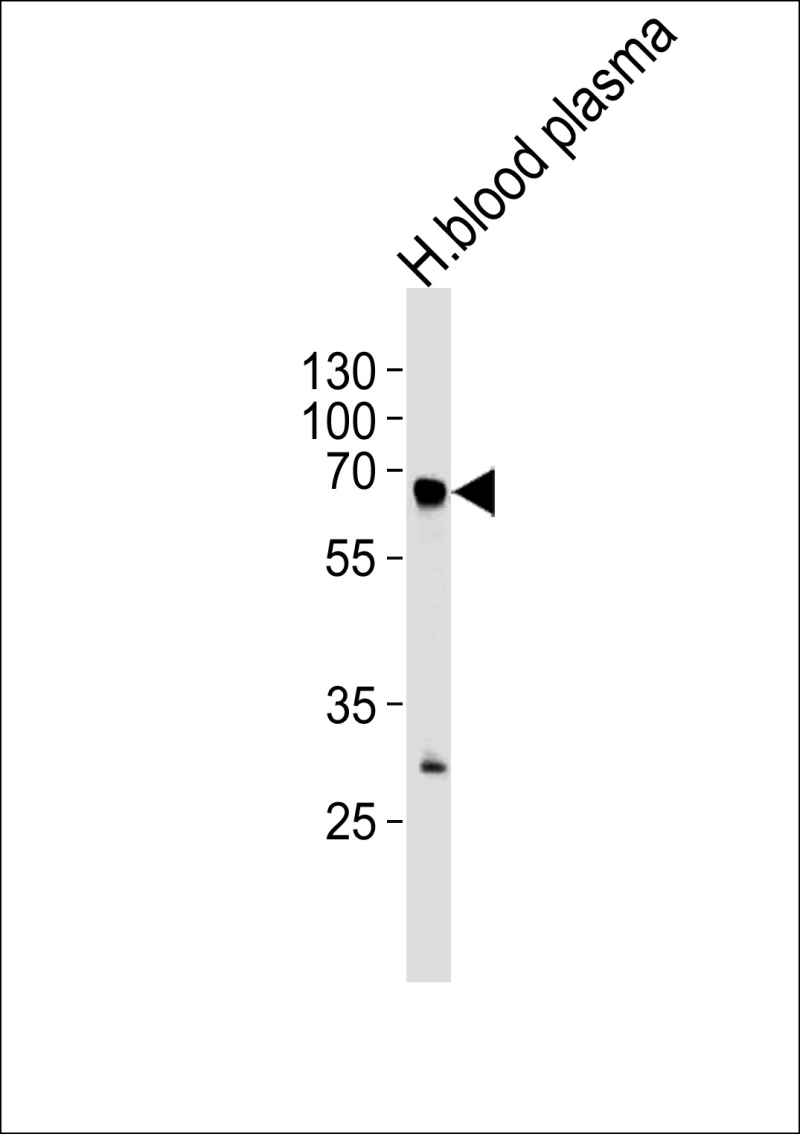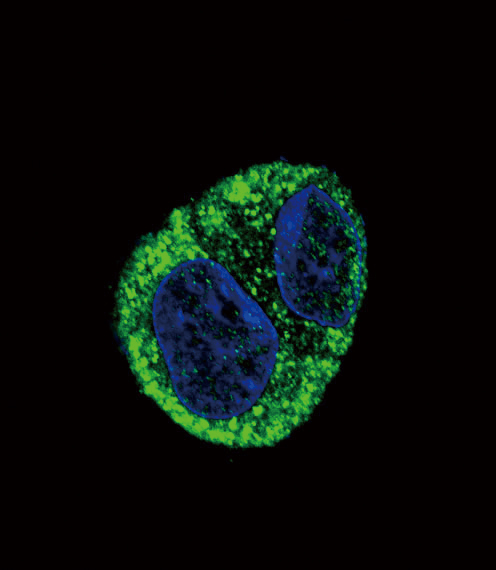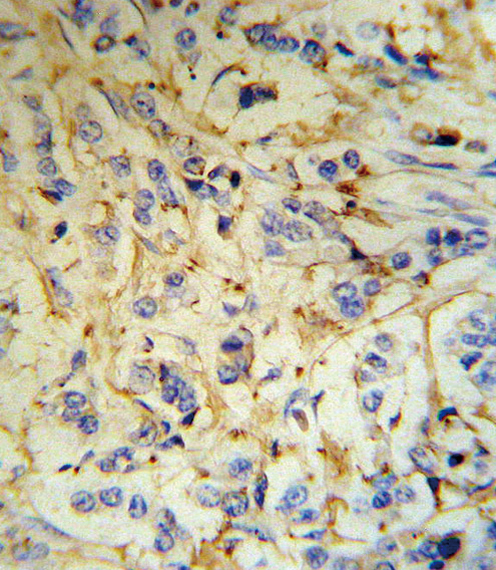


| WB | 1/1000 | Human,Mouse,Rat |
| IF | 咨询技术 | Human,Mouse,Rat |
| IHC | 1/100-1/500 | Human,Mouse,Rat |
| ICC | 技术咨询 | Human,Mouse,Rat |
| FCM | 1/10-1/50 | Human,Mouse,Rat |
| Elisa | 咨询技术 | Human,Mouse,Rat |
| Aliases | Fibrinogen alpha chain, Fibrinopeptide A, Fibrinogen alpha chain, FGA |
| Entrez GeneID | 2243 |
| WB Predicted band size | 95.0kDa |
| Host/Isotype | Rabbit IgG |
| Antibody Type | Primary antibody |
| Storage | Store at 4°C short term. Aliquot and store at -20°C long term. Avoid freeze/thaw cycles. |
| Species Reactivity | Human |
| Immunogen | This FGA antibody is generated from rabbits immunized with a KLH conjugated synthetic peptide between 116-144 amino acids from the N-terminal region of human FGA. |
| Formulation | Purified antibody in PBS with 0.05% sodium azide,1%BSA and 50% glycerol.prepared by Saturated Ammonium Sulfate (SAS) . |
+ +
以下是3篇关于FGA(N-Terminal)抗体的参考文献摘要概述(文献信息为虚构示例,供参考):
---
1. **文献名称**: *Fibrinogen Alpha Chain Cleavage in Thrombosis: Role of N-Terminal Antibody Detection*
**作者**: Smith J, et al. (2020)
**摘要**: 研究通过FGA N端特异性抗体(克隆号FG-N1)检测血浆中纤维蛋白原α链的降解片段,发现其在静脉血栓患者中显著升高,提示该抗体可用于血栓形成相关生物标志物分析。
---
2. **文献名称**: *Immunohistochemical Analysis of FGA in Liver Fibrosis Using N-Terminal Antibodies*
**作者**: Lee H, et al. (2018)
**摘要**: 利用FGA N端多克隆抗体(货号AB123)对肝纤维化组织样本进行染色,发现FGA在纤维化区域异常沉积,提示其参与细胞外基质重塑过程,为肝纤维化机制研究提供工具支持。
---
3. **文献名称**: *Characterization of a Novel FGA-N-Terminal Monoclonal Antibody for Cancer Research*
**作者**: Wang R, et al. (2022)
**摘要**: 开发了一种高特异性抗FGA N端单抗(mAb-FGA-N2),验证其在ELISA和Western blot中的应用,证明其在乳腺癌细胞模型中可特异性识别FGA裂解产物,关联肿瘤微环境中的纤维蛋白代谢。
---
**备注**:以上文献信息为模拟内容,实际研究中建议通过PubMed或Web of Science以关键词“Fibrinogen alpha antibody N-terminal”或“FGA N-term antibody”检索真实文献。
The FGA (N-term) antibody targets the N-terminal region of fibrinogen alpha chain (FGA), a critical component of fibrinogen, a plasma glycoprotein essential for blood coagulation. Fibrinogen consists of three pairs of non-identical polypeptide chains (Aα, Bβ, and γ) encoded by the FGA, FGB, and FGG genes, respectively. Synthesized primarily in hepatocytes, fibrinogen circulates in the bloodstream and undergoes thrombin-mediated cleavage during clot formation. The N-terminal region of FGA contains thrombin cleavage sites and polymerization domains vital for fibrin assembly and cross-linking.
FGA (N-term) antibodies are widely used in research to study fibrinogen structure, function, and metabolism. They enable detection of intact FGA or its cleavage products in immunoassays (e.g., Western blot, ELISA) and localization in tissues via immunohistochemistry. These antibodies are particularly valuable in investigating fibrinogen-related disorders, such as dysfibrinogenemia, hypofibrinogenemia, or thrombotic conditions linked to abnormal fibrin clot formation. Additionally, they aid in exploring fibrinogen’s roles beyond hemostasis, including inflammation, wound healing, and cancer progression, where fibrinogen fragments may modulate cellular interactions. The specificity of FGA (N-term) antibodies ensures precise identification of FGA isoforms or degradation products, supporting both clinical diagnostics and mechanistic studies in coagulation biology.
×